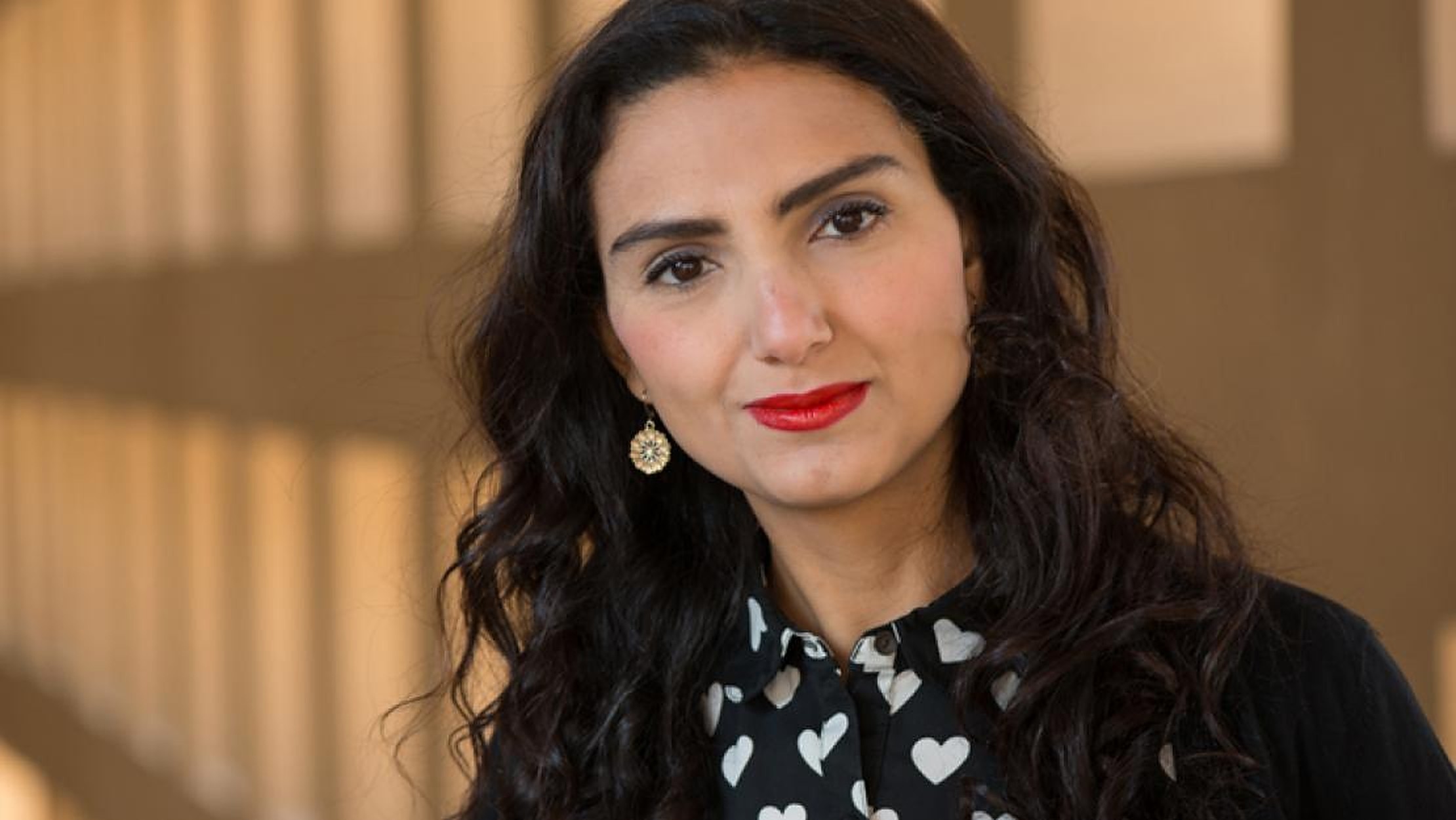Society
5.25.2020
Reem Bassiouney: “Hard to be a woman when you’re a public figure”

A professor at the American University in Cairo, Reem Bassiouney just received the Naguib Mahfouz Prize, Egypt’s most prestigious literary award. A trilogy which plunges the reader into the Mamluks’ history.
Author of several novels and a number of short narratives, Reem Bassiouney is well known in the world of literature. Her books like Dr. Hanaa or the Pistachio Seller have been translated in English, but she is also the author of many successful academic books in sociolinguistics, a discipline she teaches at the American University of Cairo, in which she analyses the relationship between Egyptian society and language. Her last book The Mamluk Trilogy is already a best seller in the country.
What drew you towards literature?
I started to study literature before sociolinguist, so it was much more of the core of my identity. I graduated from the english literature department of the University of Alexandria and we had a lot of readings of novels from different countries the world, so this helped me a lot in my writing. Coming from the city of Alexandria is also very related to my experience of creative writing. If I started writing novels when I was 12 years old, I wrote maybe 13 before I started to publish any and the first that I published in 2005 and was called The Smell of the Sea and it was about Alexandria. In that time, I was living abroad and studying in the UK where I was a student at Oxford and started my interest in identity issues.
How your studies in sociolinguistics influence your writing?
In Egypt, when you graduate, you can get appointed at the University, so I was appointed at the university in Egypt and they told me that I will have to study sociolinguistics if I want to continue in PHD,which I did. I went to study sociolinguistics at Oxford University and discovered this discipline which is all about the relationship between language and society. So somehow, it was incredibly useful for my writing career. When I wrote my book Arabic Sociolinguistics in 2019, it taught me so much about the arab world and I was also writing a novel called Love, Arab style. A novel about the identity of an egyptian girl and the way she is faced by the Arab world while being in the US. When I wrote Language and Identity in Modern Egypt, I started being interested in the relationship between identity and history in Egypt, and I wrote my novel The Tour Guide. Sociolinguistics and literature were always hand in hand in my creative process.
How did you have the idea of writing a trilogy about the Mamluks?
I come from Alexandria so initially I felt more affinity towards greek heritage rather than islamic one. When I moved to Cairo to become a professor at AUC in 2013, some friends dragged me to Sultan Hassan, in the Islamic part of the city. Suddenly, I found all this beauty that I never appreciated before. I remember that I felt a spiritual affinity towards the place, there was a sufi singer at that time and I had tears in my eyes. I wanted to know who Sultan Hassan was, and I learned he was a young sultan who spent all his money to build this mosque and who was killed. But I wanted to know more, so I spent three years of my life dwelling deep in every single monument built by the Mamelouks in Egypt. I used a lot of modern arabic references but also some very old chronicles and memoirs for european travellers and traders, which were very useful and provided me with a lot of details for my novel. It was very fascinating to access this part of history very muched ignored and forgotten. No one talks about the mamluks today but they ruled over 300 years in Egypt and left a lot of monuments.
How do you feel about the Naguib Mahfouz prize?
I am extremely proud because and it is a big honor for me because I am a great admirer of his work. I think there is a lot of honesty and freshness in Naguib Mahfouz work that you can read anytime and it still appears to the human soul and heart. I am also very happy with the timing of the prize because the novel was already a bestseller and a big success in Egypt when I received it, so it gave me a lot of confidence.
Do you find it difficult to be a woman writer?
I think it is very difficult for any woman all over the world when you are a public figure, either as a writer, a journalist or an actress. It was not tough for me because my professor status gave me enough credibility, but I can see young women writers struggling.
popular

